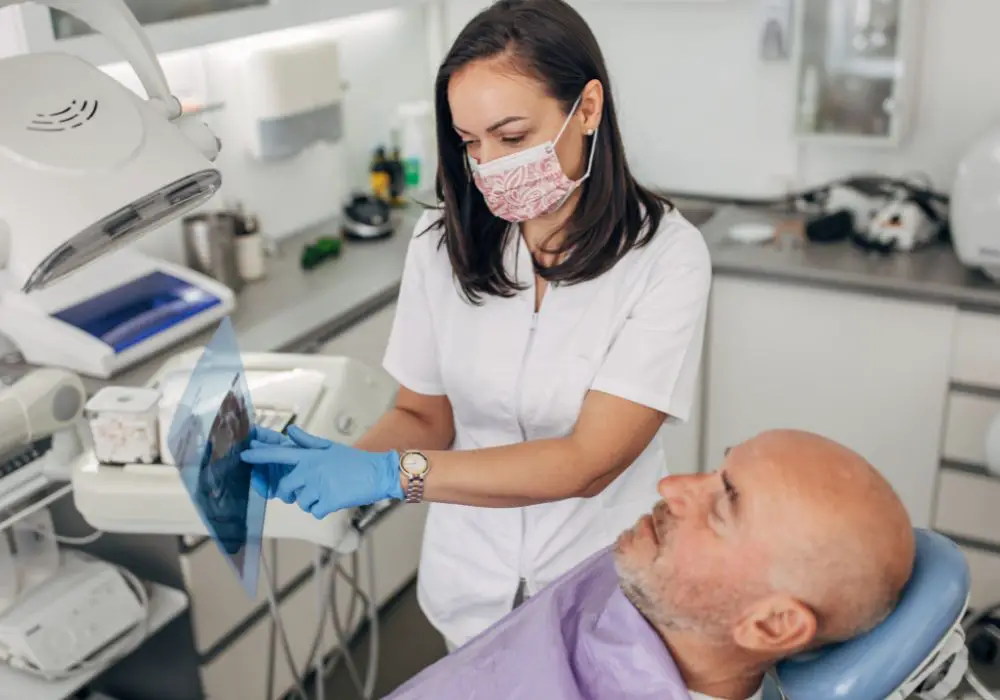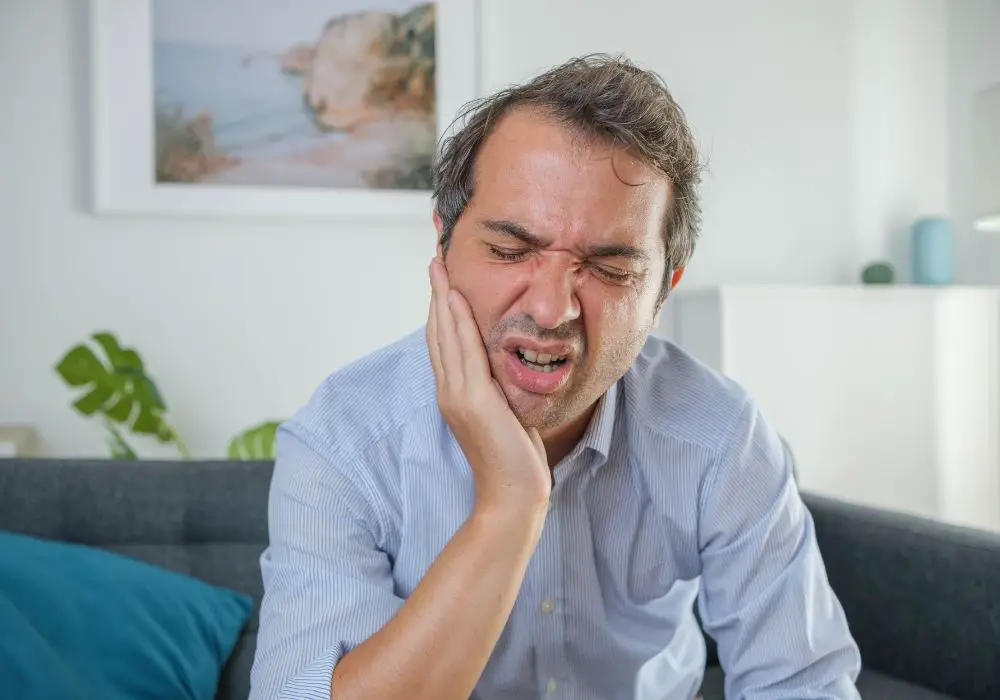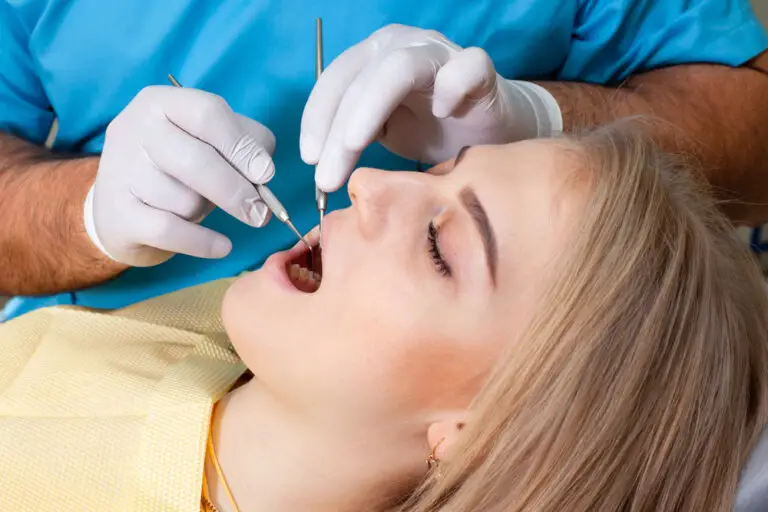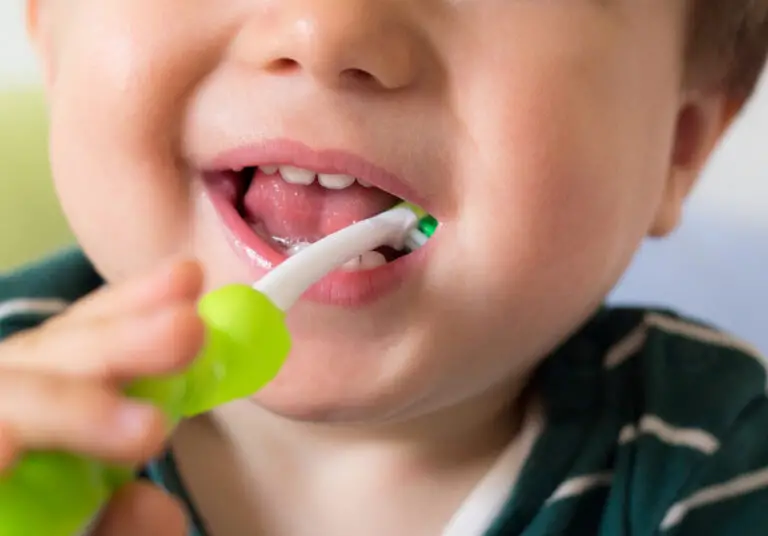If you have rotten teeth, you’re not alone. Many people experience tooth decay due to poor dental hygiene, a bad diet, or other factors. When you have multiple rotten teeth, it can be overwhelming and even embarrassing. You may be wondering what your options are and what you can do to improve your dental health.
The first step in addressing rotten teeth is to visit a dentist. They can assess the extent of the damage and recommend the best treatment options for you. Depending on the severity of the decay, you may need to have some or all of your teeth removed. This can be a scary prospect, but it’s important to remember that there are many options available to replace missing teeth, such as dentures, implants, and bridges. Your dentist can help you decide which option is best for you based on your individual needs and preferences.
In addition to seeking professional dental care, there are steps you can take at home to improve your dental health. Brushing your teeth at least twice a day and flossing daily can help prevent further decay and gum disease. Eating a healthy diet that’s low in sugar and high in nutrients can also help keep your teeth strong and healthy. With the right care and treatment, you can improve your dental health and regain your confidence.
Understanding Rotten Teeth

If you have been experiencing pain or sensitivity in your teeth and gums, it may be a sign of rotten teeth. Rotten teeth occur when the enamel on your teeth becomes damaged by decay or infection. In this section, we will discuss the causes and symptoms of rotten teeth.
Causes of Rotten Teeth
There are several factors that can cause rotten teeth:
- Poor dental hygiene: Regular brushing and flossing are necessary to remove plaque and keep your teeth strong and healthy. Brush your teeth at least two times a day and floss daily.
- Sugar and starches: Consuming sugary and starchy foods and drinks can lead to the buildup of plaque, which can cause tooth decay.
- Dry mouth: Lack of saliva can cause tooth decay because saliva helps to neutralize acid in the mouth.
- Genetics: Some people may be more prone to tooth decay due to genetics.
Symptoms of Rotten Teeth
The following are common symptoms of rotten teeth:
- Toothache or pain when biting
- Sensitivity to hot, cold, sweet, or sour foods
- Visible holes or pits in the teeth
- Bad breath
- Discoloration of the teeth
If you are experiencing any of these symptoms, it is important to see a dentist as soon as possible. Your dentist can determine the extent of the damage and recommend the appropriate treatment.
Prevention of Tooth Decay
Preventing tooth decay is the best way to avoid having all your teeth rot. Here are some tips to help you keep your teeth healthy:
- Brush your teeth at least twice a day with fluoride toothpaste.
- Floss daily to remove plaque and food particles from between your teeth.
- Use mouthwash to kill bacteria and freshen your breath.
- Limit sugary and acidic foods and drinks, such as candy, soda, and citrus fruits.
- Drink plenty of water to help wash away food particles and bacteria in your mouth.
- Chew sugar-free gum after meals to stimulate saliva production, which helps neutralize acid and prevent tooth decay.
- Visit your dentist regularly for check-ups and cleanings.
By following these simple steps, you can help prevent tooth decay and keep your teeth healthy for years to come.
Consulting a Dental Professional

If you have rotten teeth, it’s important to consult a dental professional as soon as possible. Here are some things to keep in mind when you visit a dentist.
When to See a Dentist
If you have any symptoms of rotten teeth, such as toothache, sensitivity, or discoloration, you should see a dentist immediately. Even if you don’t have any symptoms, it’s a good idea to visit a dentist regularly for checkups and cleanings. This can help catch any dental problems early on, before they become more serious.
What to Expect at the Dentist
When you visit a dentist, they will examine your teeth and gums to determine the extent of the damage. They may take x-rays to see if there is any decay beneath the surface of your teeth. Based on their findings, they will recommend a treatment plan.
If your teeth are severely decayed, your dentist may recommend extraction. They will remove the affected teeth and discuss options for replacing them, such as dentures, bridges, or implants.
If your teeth are not severely decayed, your dentist may recommend fillings or crowns to repair the damage. They may also recommend a deep cleaning to remove any plaque or tartar buildup that may be contributing to the decay.
In any case, it’s important to follow your dentist’s recommendations for treatment and to maintain good oral hygiene habits at home. Brush your teeth at least twice a day, floss daily, and use mouthwash to help kill bacteria. With proper care, you can prevent further damage to your teeth and maintain a healthy smile.
Treatment Options for Rotten Teeth
If you have rotten teeth, there are several treatment options available to restore your oral health. The type of treatment you need will depend on the severity of your tooth decay and your overall dental health. Here are some common treatment options for rotten teeth:
Fillings and Crowns
When tooth decay is caught early, your dentist may recommend a filling to restore the tooth. A filling is a material that is used to fill the cavity caused by decay. If the decay is more extensive, your dentist may recommend a crown. A crown is a cap that is placed over the tooth to restore its shape, size, and strength.
Root Canal Therapy
If the decay has reached the inner part of the tooth, known as the pulp, you may need a root canal. During a root canal, your dentist will remove the infected pulp and clean out the inside of the tooth. They will then fill the tooth with a special material and place a crown over it to protect it.
Dental Implants
If your tooth is too damaged to be saved, your dentist may recommend a dental implant. A dental implant is a small post that is surgically placed in your jawbone. It acts as a replacement tooth root and can support a crown or bridge.
It’s important to note that prevention is the best way to avoid rotten teeth. Regular dental checkups and cleanings, along with good oral hygiene habits, can help prevent tooth decay from developing in the first place. If you do have rotten teeth, don’t delay treatment. The longer you wait, the more extensive the damage can become, and the more difficult it may be to restore your oral health.
Post-Treatment Care
After undergoing treatment for rotten teeth, it is important to take proper care of your oral health to prevent further damage or decay. Here are some essential post-treatment care tips to follow:
Oral Hygiene Habits
To maintain healthy teeth and gums, it is important to develop good oral hygiene habits. This includes brushing your teeth twice a day with fluoride toothpaste, flossing daily, and using an antimicrobial mouthwash to kill harmful bacteria.
After undergoing treatment for rotten teeth, you may need to adjust your oral hygiene routine to accommodate any temporary or permanent dental appliances. Your dentist will provide you with specific instructions on how to clean and care for your teeth and gums, depending on your individual needs.
Regular Dental Check-Ups
Regular dental check-ups are crucial for maintaining good oral health and preventing further tooth decay or gum disease. Your dentist will recommend a schedule for follow-up appointments, depending on your individual needs and the severity of your condition.
During these check-ups, your dentist will examine your teeth and gums, perform any necessary cleanings or treatments, and monitor your progress. They may also recommend additional treatments or procedures to address any issues that arise.
By following these post-treatment care tips, you can help ensure that your teeth and gums stay healthy and strong for years to come. Remember to always consult with your dentist if you have any questions or concerns about your oral health.
Impact of Rotten Teeth on Overall Health

Rotten teeth can have a significant impact on your overall health. When left untreated, tooth decay can lead to serious complications, including infections that can spread throughout the body. Here are some of the ways that rotten teeth can affect your health:
Infections
When tooth decay is left untreated, it can lead to infections in the mouth that can spread to other parts of the body. These infections can cause serious health problems, including pneumonia, endocarditis, and sepsis. In some cases, these infections can even be life-threatening.
Nutritional Deficiencies
When you have rotten teeth, it can be difficult to eat a healthy diet. You may avoid certain foods because they are too difficult to chew, or you may experience pain when eating. This can lead to nutritional deficiencies, which can have a negative impact on your overall health.
Cardiovascular Disease
There is a link between poor oral health and cardiovascular disease. When you have rotten teeth, it can lead to gum disease, which can cause inflammation throughout the body. This inflammation can contribute to the development of cardiovascular disease, including heart attacks and strokes.
Diabetes
People with diabetes are more likely to have oral health problems, including tooth decay and gum disease. When you have rotten teeth, it can make it more difficult to manage your blood sugar levels, which can lead to complications related to diabetes.
In conclusion, taking care of your teeth is important for your overall health. If you have rotten teeth, it’s important to seek treatment as soon as possible to prevent complications.
Psychological Effects of Rotten Teeth
Having rotten teeth can have a significant impact on your mental health and well-being. You may feel embarrassed or ashamed of your teeth, which can lead to social anxiety and isolation. You may also feel self-conscious when speaking or smiling, which can affect your confidence and self-esteem.
In addition to these emotional effects, rotten teeth can also cause physical discomfort and pain. This can lead to difficulty eating and sleeping, as well as difficulty concentrating on daily tasks.
It’s important to remember that you are not alone in dealing with the psychological effects of rotten teeth. Many people struggle with dental issues, and there are resources available to help you improve your oral health and regain your confidence.
One way to address the psychological effects of rotten teeth is to seek professional dental treatment. A dentist can help you develop a treatment plan that addresses your specific needs and concerns. This may include procedures such as fillings, crowns, or extractions.
In addition to professional treatment, there are also steps you can take at home to improve your oral health. This includes brushing and flossing regularly, using mouthwash, and avoiding sugary and acidic foods and drinks.
Remember, taking care of your teeth is an important part of maintaining your overall health and well-being. Don’t let the psychological effects of rotten teeth hold you back from living your life to the fullest.
Frequently Asked Questions
How can I fix my rotten teeth naturally?
While there are some natural remedies that can help prevent tooth decay and promote oral health, once your teeth have started to rot, it is important to seek professional dental care. Natural remedies such as oil pulling, using baking soda, and consuming certain foods can help improve oral health, but they are not a substitute for professional dental care.
What are the early signs of rotting teeth?
The early signs of rotting teeth include tooth sensitivity, pain, and discoloration. You may also notice bad breath and a bad taste in your mouth. If you experience any of these symptoms, it is important to see a dentist as soon as possible.
Can rotten teeth be fixed or do they need to be removed?
The treatment for rotten teeth depends on the severity of the decay. In some cases, a filling or crown may be able to fix the tooth. However, if the decay is too severe, the tooth may need to be removed. It is important to see a dentist as soon as possible to determine the best course of treatment.
What can I do to stop the smell of a rotten tooth?
The smell of a rotten tooth can be caused by bacteria in the mouth. To stop the smell, it is important to practice good oral hygiene, including brushing and flossing regularly. You can also rinse your mouth with mouthwash or saltwater to help kill bacteria and freshen your breath.
Are there any home remedies for fixing a rotten tooth?
While there are some natural remedies that can help prevent tooth decay and promote oral health, once your teeth have started to rot, it is important to seek professional dental care. Natural remedies such as oil pulling, using baking soda, and consuming certain foods can help improve oral health, but they are not a substitute for professional dental care.
Can rotten teeth cause health problems?
Yes, rotten teeth can cause health problems. The bacteria that cause tooth decay can spread to other parts of the body and lead to infections and other health issues. It is important to see a dentist as soon as possible if you suspect you have a rotten tooth.






